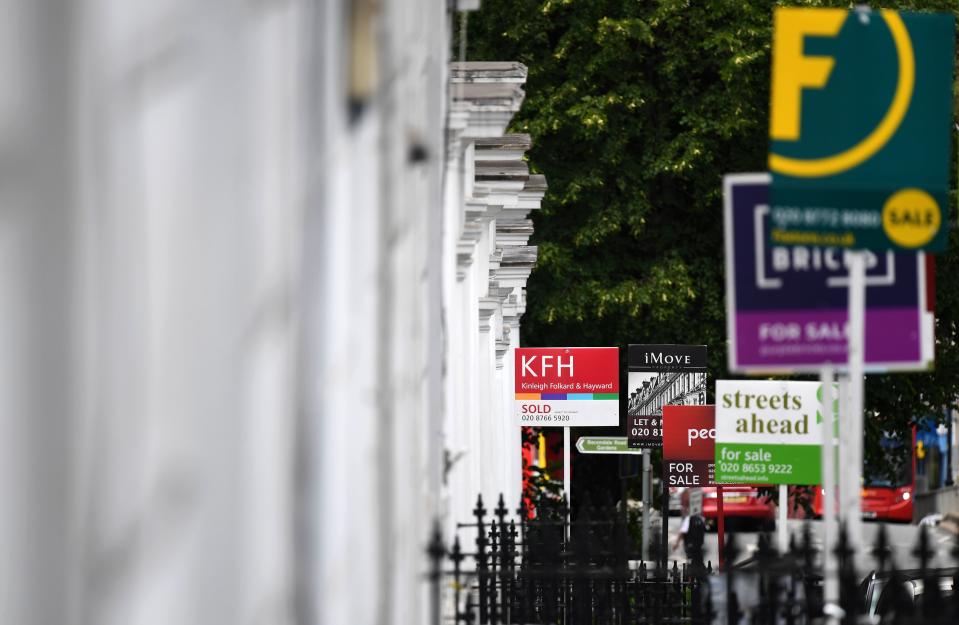UK government announces stamp duty holiday to boost property market
Chancellor Rishi Sunak has announced a stamp duty holiday for property buyers, part of a wide-ranging stimulus plan aimed at jumpstarting the UK economy after lockdown.
The chancellor announced on Wednesday that the threshold for stamp duty, a tax on property transactions in England and Northern Ireland, will be temporarily raised from £125,000 to £500,000 ($627,440).
The cut, which takes effect immediately, will run until 31 March next year. Sunak said nine out of 10 people buying a main home this year will pay no stamp duty as a result of the change.
“We need people feeling confident to buy, sell, renovate, more and improve,” Sunak said. “That will drive growth, that will create jobs.”
READ MORE: Chancellor announces £5,000 'green' giveaway for home owners and landlords

Property stocks rallied on the announcement. Estate agent Foxtons (FOXT.L) rose 3.7% and Purplebricks (PURP.L) was up 2.2%.
Stamp duty is a land tax levied on property buyers as a percentage of the purchase price. It is charge on a sliding scale from 2% to 12%, depending on a property’s value.
The tax break is meant to encourage people to start moving again after the COVID-19 lockdown. Experts said the change would save home buyers around £2,500 on average.
Keeping the property market buoyant could support thousands of jobs in real estate, home building, and other related industries.
Ross Counsell, a chartered surveyor and director at Good Move, said the announcement was a “a positive step forward” that would “provide a further boost to demand for housing.”
READ MORE: UK chancellor unveils three-point plan to get millions back to work
However, economists and tax experts expressed doubts over how effective the policy would be in supporting the market.
Samuel Tombs, chief UK economist at Pantheon Macroeconomics, said the impact would be “marginal.”
“We do not think that a stamp duty holiday alone would stop house prices falling this year,” he wrote in an investment note. “We currently forecast a 5% peak-to-trough decline in prices.”
Stamp duty holidays have been used to try and counteract recessions before, in 1992 and 2008. Past experience shows the policy has mixed results.
“Studies showed that it increased transaction volumes by 8% [in 2008/9] but, significantly, the increase was offset by a substantial downturn when the holiday was withdrawn,” said Sean Randall, a partner at Blick Rothenberg.
READ MORE: Brits get 50% off restaurants with 'Eat Out to Help Out' scheme
Tax barrister Patrick Cannon said the stamp duty holiday in 1992 had a negative effect on the UK housing market.
“Vendors raised their asking prices by roughly the same amount as the tax saving,” Cannon said. “It therefore worked out as a subsidy to sellers, at the cost of the taxpayer.
“Also, when the holiday ended, prices fell to reflect the re-imposition of the tax. Buyers who had bought at the higher prices then got burned as values fell with some put in to negative equity.
“The stamp duty holiday, which had been intended to bring forward a recovery in the housing market, ended up further undermining the confidence that was essential to recovery.”

